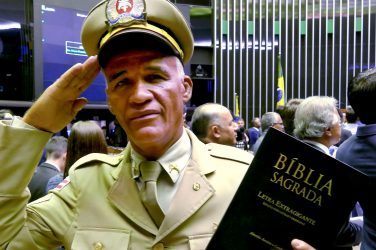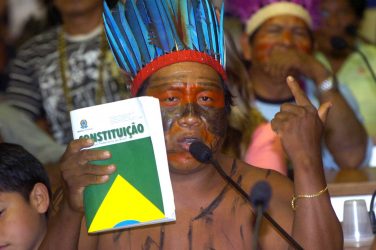Last Sunday, São Paulo authorities dramatically deployed a “new” approach to dealing with drug use: Stamp it out by force. Hundreds of police officers stormed a downtown area known as “cracolândia,” where people who use drugs have congregated for years. They detained 53 suspected drug dealers and expelled everyone else.
On Tuesday, the municipal government sent excavators to start demolishing two full blocks, under the authority of an eminent domain decree. Police gave store owners a few hours to vacate the buildings. Three residents were injured when part of the building collapsed after an excavator hit a wall nearby.
Hundreds of people who used drugs continue to loiter and sleep in the streets around cracolândia. Municipal services, such as shelters, were not prepared to respond. City authorities admitted they had not even warned those services of the operation.
In response, public defenders obtained an injunction that forbids evicting people without providing them with other lodging, and have launched a joint investigation with the prosecutor’s office into the possible misuse of municipal civil guards during the operation.
Meanwhile, the municipal government has requested that a judge authorize it to use police to force people who use drugs to undergo medical examinations and compulsory drug treatment.
If given the new powers, the city hall’s doctors and psychologists would have the power to order involuntary drug treatment at their own discretion. Currently, only judges can do that.
The callousness exhibited by authorities in São Paulo is shocking. No one should be imprisoned solely because of drug use or possession for personal use. Moreover, medical treatment should be based on free and informed consent.
The effort by the São Paulo government is a classic example of the “war on drugs” approach that for decades has failed to reduce drug use, driven people who use drugs away from essential health services, and given rise to widespread human rights violations.
Drugs should be viewed as a health issue, not a police problem. The best way to address it is by offering harm reduction services and community-based voluntary treatment programs.
That was the rationale behind “With Open Arms,” a program created by the previous mayor. It provided crack users with housing, food, and jobs, without requiring drug abstinence, on the premise that people can reduce problematic drug use on their own if helped to improve their overall quality of life.
This week, the new conservative mayor closed that program down and inaugurated its replacement, called “Redemption,” with the show of police force. It has started badly.
César Muñoz is a senior researcher at Brazil’s Human Rights Watch. He used to be EFE’s Bureau Chief in Brazil, Ecuador, and Paraguay.






